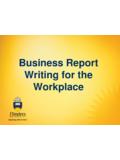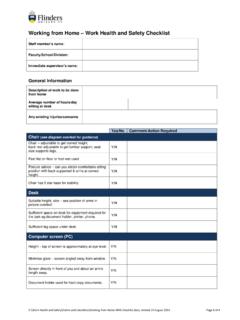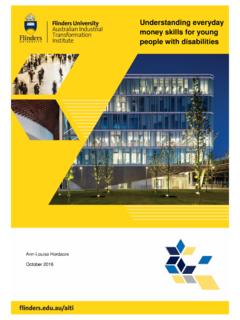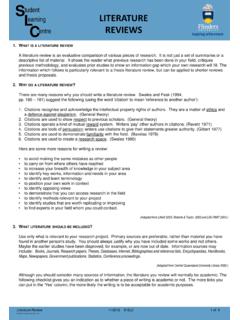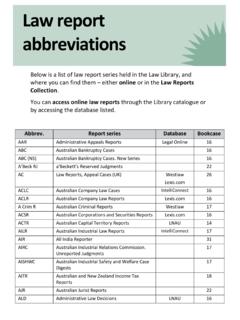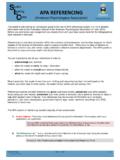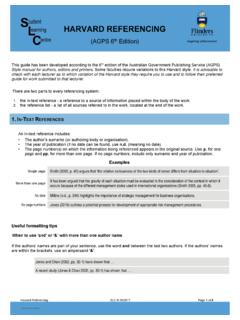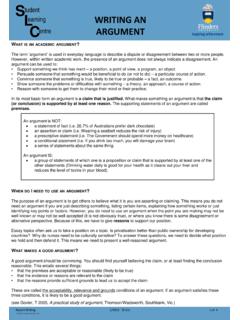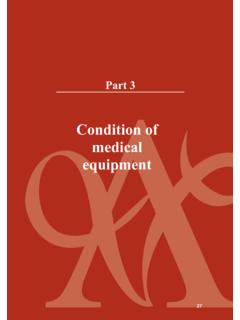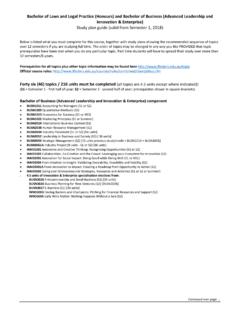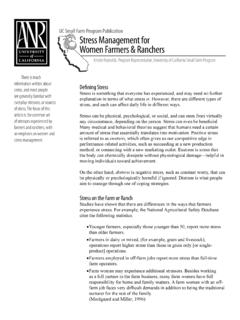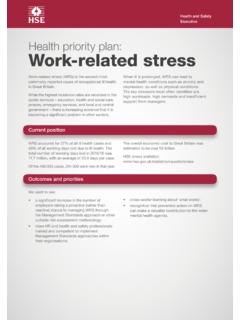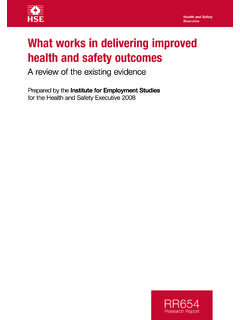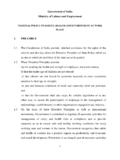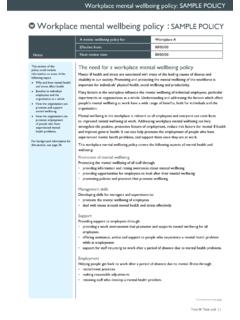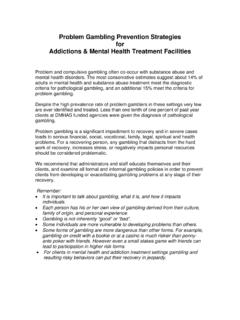Transcription of Under Stress: The Concerns and Coping Strategies …
1 Under stress : The Concerns and Coping Strategies of teacher education students Rosalind Murray-Harvey School of education Flinders University Paper presented at the Colloquium in Field Based education Flinders University, Adelaide. 24-26 November, 1999. How teacher education students Cope with Practicum Concerns Rosalind Murray-Harvey Abstract The topic of student teacher stress in the practicum has generated interest across teacher education programs. However, there is very little research on the sources of support students draw on that help them cope with practicum stresses. Of particular interest in this study was seeking data on this issue directly from the students .
2 That is, to represent the students ' perspective. Information was sought from students who undertook two tasks in providing information on their Coping . They ranked their five most important sources of support for Coping , and they noted the Strategies they used to cope with practicum stresses. The critical importance of the student/supervising teacher relationship for student success in the practicum emerged from the students ' reports that seeking support from the teacher was their principal Coping strategy. Differences emerged between the most and least stressed students in terms of their reported use of Coping Strategies . Implications of the findings for teacher education programs are addressed in the discussion.
3 Introduction It is inevitable that, along with the rewarding and satisfying aspects of the teaching practicum, student teachers will also encounter a range of stressful experiences. Teaching is considered to be among the professions in which employees are subject to high levels of is capable of exposing student teachers to situations that are similarly, if not more stressful than those experienced by practicing teachers (Black-Branch & Lamont, 1998, p. 183). The novice status of the student teacher is such that the range of stressors with which they must cope will necessarily differ from the stressors that negatively impact on practising teachers.
4 Their dual roles of student and novice teacher require that consideration be given to how students cope in both roles. Fontana and Abouserie (1993) note that definitions of stress range from simple, single word statements such as tension' or pressure' to complex physiological and psychological explanations that are given for responses to certain stimuli. Their own definition refers to the demand made upon the adaptive capacities of the mind and body, a demand which, if continued beyond the ability of these capacities to respond, leads to the physical and psychological exhaustion and possibly ultimate collapse referred to by Seyle (Fontana & Abouserie, 1993, p.)
5 261). The significance of the need to respond to the problem of student teacher stress lies in the evidence that stress affects teacher behaviour and this in turn reduces classroom effectiveness, particularly in relation to effects of lower pupil/ teacher rapport, reduced pupil achievement and increased levels of pupil anxiety. teacher stress is an enduring, complex problem that has been well documented in the literature, a literature that also proposes ways of managing, or Coping with stressors inherent in teaching. More recently, the relationship between student teacher stress and teacher stress is being recognized with statistics to suggest that Coping with the stress of teaching needs to be addressed at the preservice stage of a teacher 's career in order to help retain capable teachers who are leaving the profession because they find their work environment too stressful.
6 Black-Branch &. Lamont (1998) report that as few as 50 per cent of teacher trainees enter and remain in the US. school system for longer than three years with many leaving to find less-stressful careers. They argue that teacher education programs have at least an ethical, if not a legal and professional responsibility, to provide support for student teachers who are Under high levels of stress during their teaching practicum. Student teacher attrition rates were identified as a concern also, in Australian research on stress in the practicum (Murray-Harvey, Slee, Lawson, Silins, Banfield, & Russell, 1999). By understanding the ways students cope with the stresses of learning to teach teacher educators may be better informed about how to assist students to become more resilient teachers.
7 With regard to the substantially different situated experience of student teachers and practising teachers, it is important to differentiate between the two groups in attempts to make meaningful interpretations of the literature. Therefore, this paper refers primarily to the research on student teacher stress with less reference to research on teacher stress . The body of research on student stress in the practicum identifies and describes sources of practicum stress and examines differences between students in their experience of stress related to variables such as gender (D'Rozario & Wong, 1996; Morton, Vesco, Williams, & Awender, 1997; Murray-Harvey et al.)
8 , 1999) and age (Bowers, Eichner & Sacks, 1983; Morton et al., 1997; Murray-Harvey et al., 1999); dispositions, anxiety/depression (Morton et al., 1997); grade- level taught; type and length of the school placement; and, practice-teaching effects (Capel, 1997). Their findings have been based on student data obtained predominantly through questionnaires and surveys. In addition, other researchers have drawn upon data from interviews, narratives, and journal accounts of students ' teaching experiences (Jelinek, 1986; MacDonald, 1993; Sumison & Thomas, 1995). However, unlike the research on student stress where conclusions have been drawn directly from the student data, the research on how students cope with stress has largely ignored the students '.
9 Perspectives. For the most part suggestions for Coping have been inferred by drawing connections between the reported stresses and a range of Coping Strategies that more generally have been found to provide a buffer against the effects of stress . In other words, few studies have sought information directly from students on the Strategies actually used to cope with the stresses they encountered in the teaching practice context. Knowledge of how students cope with practicum stresses would have the benefit of informing teacher education programs of the most effective ways of providing support. So, one aim of this research was to draw upon the Coping Strategies that teacher education students report and examine these in relation to their perception of stress during the practicum.
10 In addition, recognizing that responses to potentially stressful stiuations can vary greatly from individual to individual (Fontana & Abouserie, 1993, p. 261), it was also of interest to look specifically at the responses of individuals for the ways they coped with practicum stresses. Effective Coping Strategies have been found to ameliorate the effects of stress . While little research is available that informs us of what these effective Coping Strategies are for teacher education students , there is evidence that inservice courses for practising teachers aimed at improving teachers' professional skills and competencies to meet the demands of teaching.
